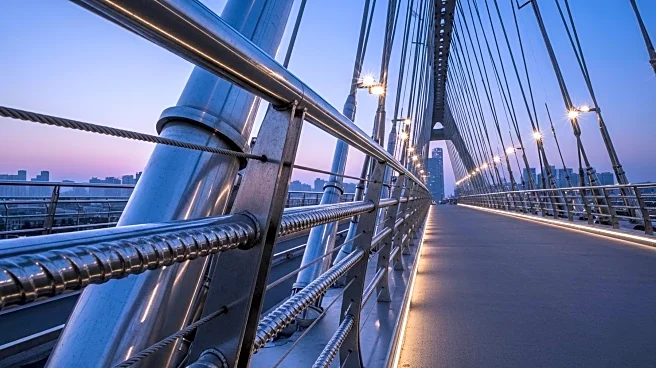What's Happening?
Allium, a startup, has developed a new method to extend the lifespan of bridges by using a paper-thin layer of stainless steel to coat regular rebar. This innovation aims to increase the durability of bridges from 30 to 100 years by preventing corrosion, a common issue that leads to structural failure. The stainless steel-layered rebar has been implemented in bridge projects on U.S. Highway 101 in California and Interstate 91 in Massachusetts. The approach offers a cost-effective alternative to traditional stainless steel rebar, which is significantly more expensive.
Why It's Important?
This development is crucial as it addresses the significant issue of bridge deterioration in the United States, where a third of bridges require repair or replacement. By reducing the need for frequent maintenance and replacements, Allium's technology could save billions in infrastructure costs. The use of stainless steel-clad rebar also supports the use of greener cements, contributing to more sustainable construction practices. This innovation could lead to safer and more reliable infrastructure, benefiting both the public and government agencies responsible for maintaining transportation networks.
What's Next?
Allium plans to expand the use of its stainless steel-clad rebar to more infrastructure projects, potentially replacing epoxy-coated rebar. The company aims to match or undercut the cost of epoxy-coated rebar, making it a more attractive option for a wider range of projects. As the technology gains traction, it could lead to changes in industry standards and construction practices, promoting the adoption of more durable and sustainable materials.
Beyond the Headlines
The introduction of this technology could have long-term implications for the construction industry, encouraging innovation in materials science and engineering. It may also influence policy decisions regarding infrastructure funding and maintenance priorities, as governments seek to maximize the lifespan and safety of public assets.









